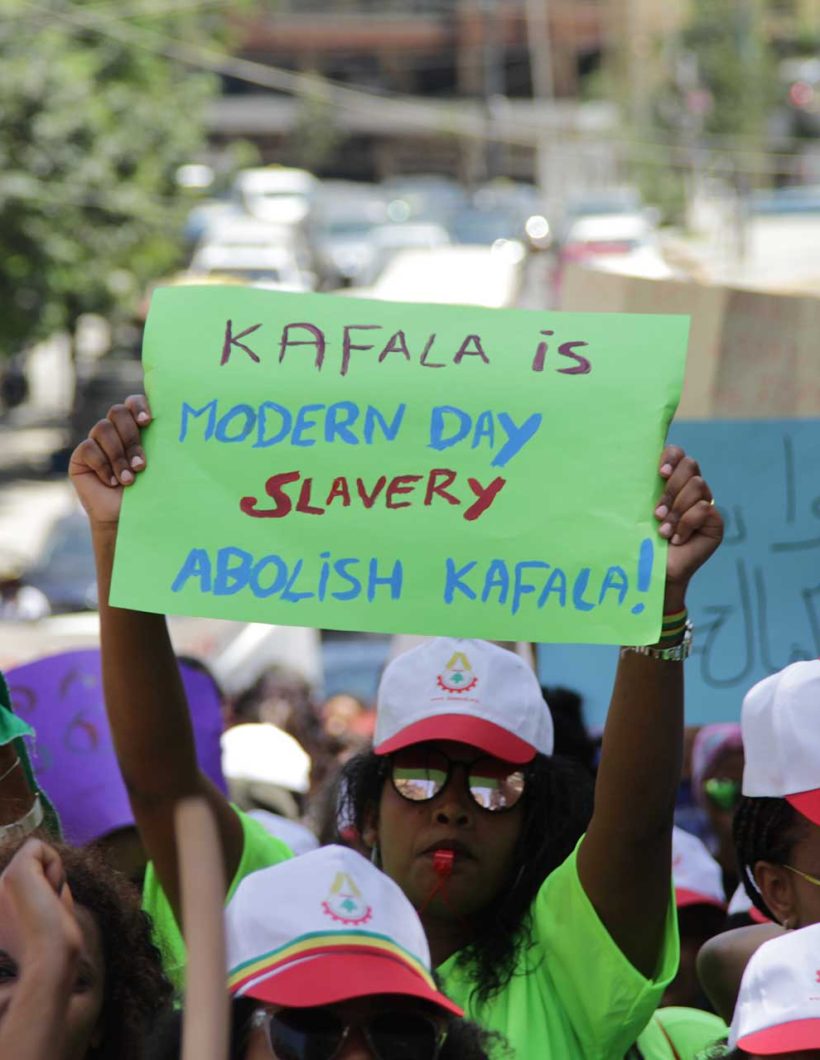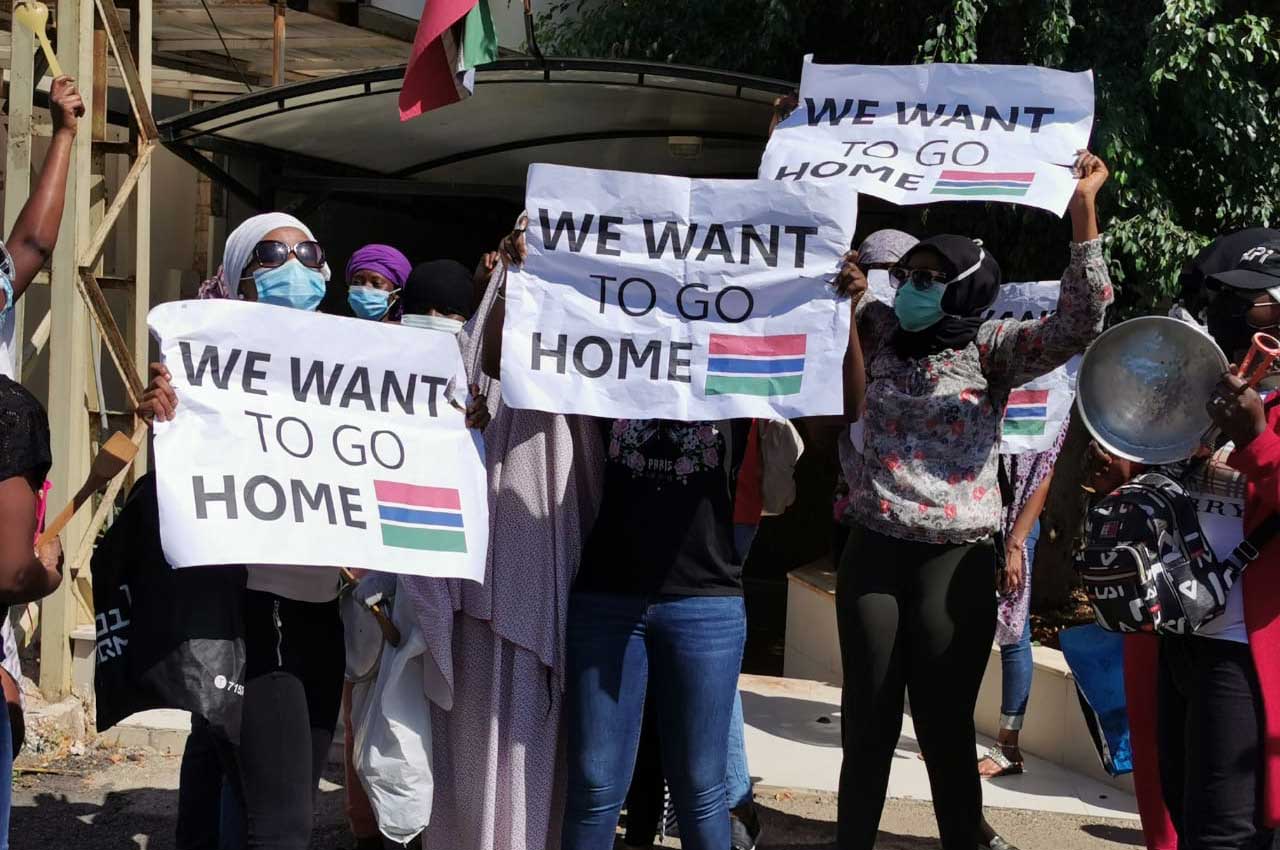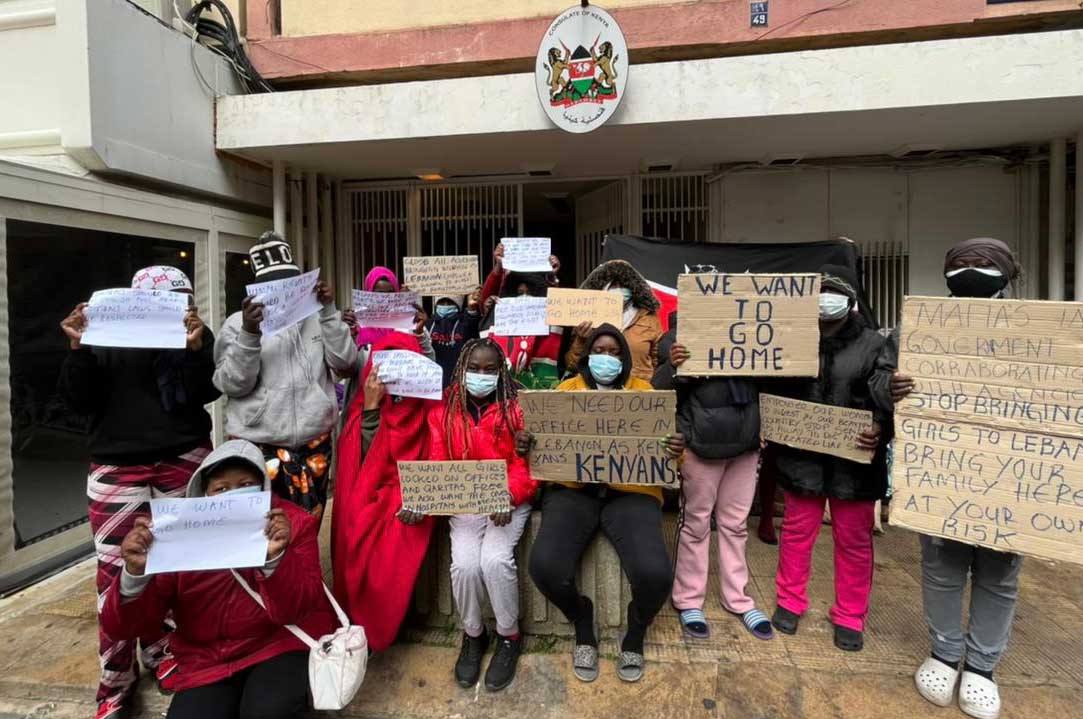Survey on the Perceptions of Kafala in Lebanon
More Incitement Against, and More Fees for Recruiting Migrant Workers | News Report: February 2024
From Narrative to Action: Stories of Racism-Fueled Demonization | News Report: January 2024
Seeking Justice for Migrants in Lebanon
Situation Brief and Forecasted Needs of Migrant Domestic Workers in Lebanon
History of Migrant Domestic Workers' Community Organizing and Class Struggle in Lebanon
L'histoire de L’organisation Communautaire et de La Lutte des Classes des Travailleuses Domestiques Migrantes au Liban
Call for a Global Strike in Solidarity with Palestine
Migrant Deaths in Lebanon: Concealed Causes | News Report: September 2023
Refugee Children: The Latest Target for Racism in Lebanon | News Report: August 2023
Domestic Workers Fight for their Rights | News Report: July 2023
International Domestic Workers Day 2023 | La Journée Internationale Des Travailleuses Domestiques 2023
Welcome To ARM
Anti-Racism Movement
Organizing with migrants for social, economic and gender justice in Lebanon.
About ARM
Anti-Racism Movement (ARM)
The Anti-Racism Movement (ARM) was launched in 2010 as a grassroots collective by young Lebanese feminist activists in collaboration with migrant workers and migrant domestic workers, following a racist incident at one of Beirut’s most well-known private beach resorts (Sporting Club).
ARM activists, using a hidden camera, filmed the administration’s blatant acts of discrimination and segregation. The video quickly spread online, and ARM’s efforts to bring this issue to light were lauded by many. Interest grew in this small volunteer-based movement, members increased, and our projects grew in scope and scale. In 2012, ARM became a registered NGO with full and part-time staff in order to increase its capacity to carry out more projects to fight racist discrimination and abuse in Lebanon.
Building on our philosophy that recognizes the importance of community-building work, ARM created the Migrant Community Centers (MCCs) which grew from one small center in 2011 in Beirut to centers in three major cities by 2016, in addition to a Sunday educational space.

Get In Touch
(+961) 21 - 428 - 338
About MCC
Migrant Community Center
In 2011, ARM established the Migrant Community Centers (MCC) where migrant workers meet, organize, build alliances, and access information, resources, and direct assistance. MCC’s mission is to improve the quality of life of migrant workers, build their capacity to self-advocate and fight for their rights, and to contribute to a strong and powerful migrant community with women as leaders of change.
The spaces are centered around the needs of the migrant community (especially women migrant domestic workers) and serve as a hub for WMDW-led initiatives, advocacy, and activism. Up until 2020, MCC operated awareness, education, capacity-building, and community-building programs, which were either suspended or transitioned online after the centers were closed due to Covid-19.
Our Advocacy
Advocacy
One of the main focus areas since ARM was founded has been advocating on the ground with migrant workers and migrant domestic workers against the Kafala (Sponsorship) system. Our advocacy efforts and campaigns often complement our casework and aim to both react to urgent issues impacting migrants and address long-term matters that need to change in order to bring about radical and systemic change and justice for migrants.
Over the years, ARM organized several campaigns both online and offline, calling for the abolishment of Kafala, for reversing racist policies targeting migrants and refugees, and aiming to instigate societal change alongside migrant activists, MCC members, and non-migrant allies such as Lebanese activists and organizers and alternative media and journalists.
To inquire about this statement and the context, contact us at [email protected] Or fill out this form.

Our Casework
Casework
The Casework team consists of three caseworkers and a legal officer dedicated to providing comprehensive assistance to migrant workers on a wide range of issues. Our team is prepared to address cases involving labor violations, such as unpaid wages, abusive working conditions, and violations by recruitment agencies. Our casework staff handles cases related to forced labor, certain UNHCR interventions, missing persons, complaints against migrant workers, and clearance procedures.
Our primary objective is to support migrant workers by making information and resources as accessible as possible. We aim to strengthen and support migrant worker networks with the tools necessary to self-advocate. This involves counseling them on various legal matters and taking the lead in managing their legal cases according to the aforementioned criteria.

News
Our media monitoring efforts complement our advocacy work for the purpose of spreading accurate information on migrant workers and refugees to tackle misinformation, and to shift the dominant discourse that either portrays them either as helpless victims with no agency or demonizes them in scapegoating campaigns under Lebanon’s ongoing crisis.
Our communication work to that end entails giving interviews alongside MCC members to the media and to researchers, publishing a weekly news report that rounds up everything related to migrants and refugees, as well as a regular Racism Monitor in collaboration with MCC members and Akhbar Alsaha.
We strongly believe in the power of migrants to tell their own stories and influence the dominant narratives themselves.